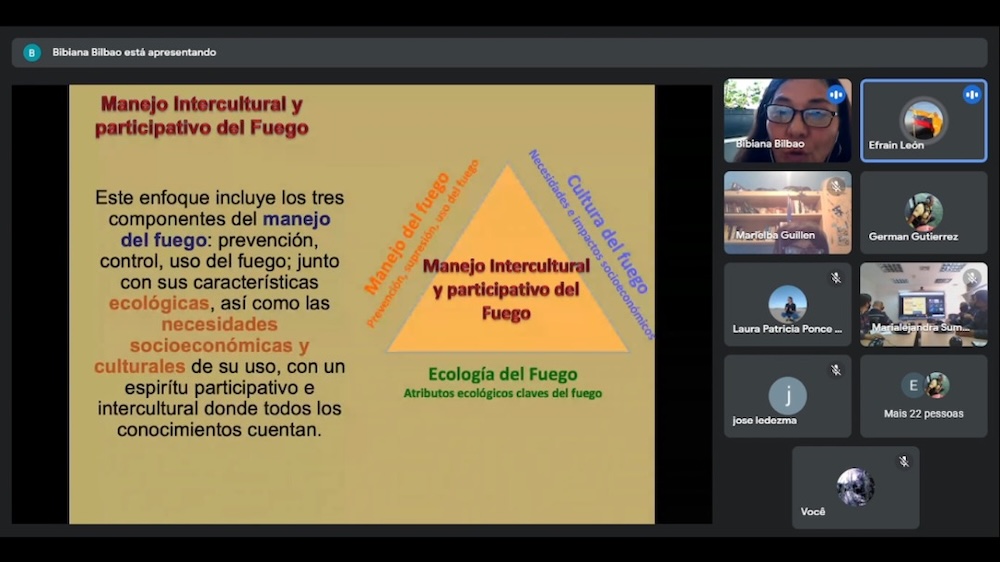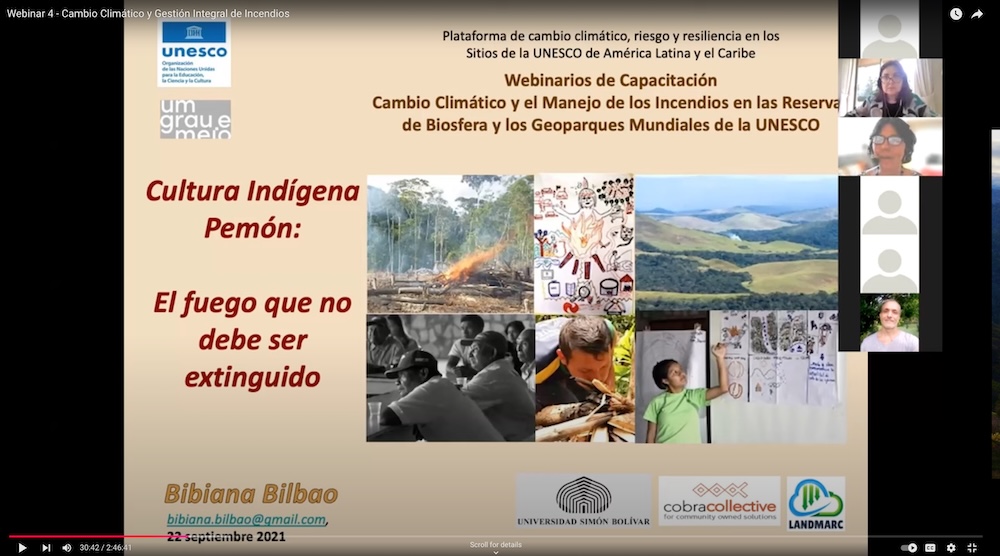LANDMARC (Land Use Based Mitigation for Resilient Climate Pathways) was a 4-year EU funded project to enhance understanding of the realistic potential of land-based negative emission solutions in agriculture, forestry and other land use sectors.
The COBRA Collective led the Venezuelan case study which explored the potential of Indigenous fire management in humid tropical forest–savanna mosaics and agroforestry in arid and semiarid lands and dry tropical forests as key Land Management Technologies (LMTs) for reducing emissions in Venezuela and the region. The study highlighted Indigenous fire management practices as an LMT to prevent catastrophic wildfires and safeguard carbon sinks in the Amazon. Additionally, we spearheaded a regional case study for the Americas, scaling up experiences and uniting intersectoral stakeholders to address challenges and define new LMTs based on intercultural fire management.
During the first year of the project, activities transitioned to virtual platforms due to the COVID-19 pandemic and Venezuela’s socio-economic crisis. Despite these challenges, leveraging existing networks and prior research collaborations enabled us to update stakeholder lists and achieve key objectives.

We achieved two critical milestones; the creation of Venezuela’s first national LMT portfolio and the development of LMT narratives. Overcoming challenges such as fragmented data and a lack of comprehensive assessments of negative emissions technologies required extensive literature reviews and significant stakeholder input to refine narratives and model scenarios effectively. Using participatory approaches, we conducted over 40 activities, engaging 90 stakeholders (30 local, 60 national), including Pemón Indigenous leaders, government officials, scientists, IPCC contributors, national forest firefighters, NGOs, and private sector representatives. Stakeholders’ insights were essential for addressing data gaps, refining narratives, and advancing collaboration, ultimately enhancing the effectiveness of LMT implementation.
Efforts to scale up and share lessons focused on integrating Indigenous fire management into broader integrated fire management paradigms through engaging regional organisations like the Amazon Cooperation Treaty Organization (ACTO) and its eight member countries, as well as international organisations such as LINKS-UNESCO, TROPENBOS, and FAO. Further impact was achieved through collaboration with the EU FIRE-ADAPT project in Argentina (see https://cobracollective.org/projects/fire-adapt-integrated-fire-management-for-climate-change.php).

Our most significant achievement was facilitating and establishing, for the first time, meaningful contact among stakeholders who had historically been isolated from one another and often held antagonistic interests and needs. The COBRA Collective has made a significant effort to amplify the voices and testimonies of historically marginalized communities. These testimonies are thoughtfully woven into a broader narrative about the traditional use of fire and the challenges and threats involved in integrating this ancestral cultural practice into contemporary fire management policies—from an intercultural perspective (see https://vimeo.com/1040107799).
Through carefully designed stakeholder engagement activities, we overcame historical divisions by fostering an atmosphere of trust. This environment enabled participants to openly express their perceptions and concerns while collaboratively and constructively proposing joint solutions. These efforts, grounded in data collection and the co-development of LMT scaling scenarios, emphasised promoting an intercultural approach to fire management. By integrating diverse voices and perspectives, the LANDMARC project not only strengthened stakeholder networks but also highlighted the value of inclusive and participatory approaches in addressing the pressing challenges of LMT adoption and scaling in dynamic and vulnerable landscapes.




